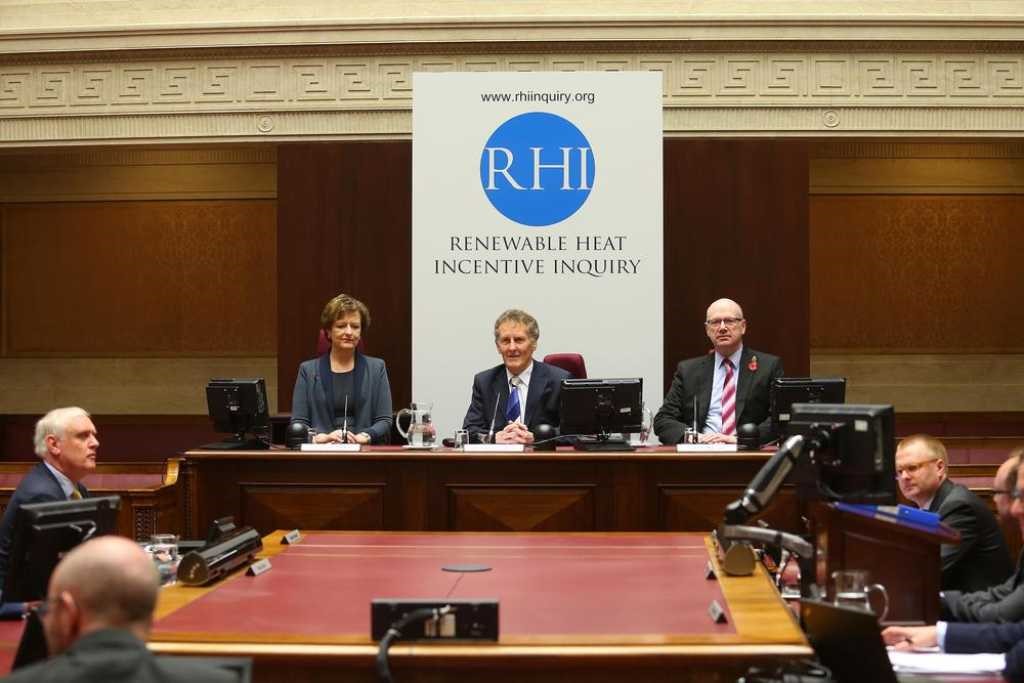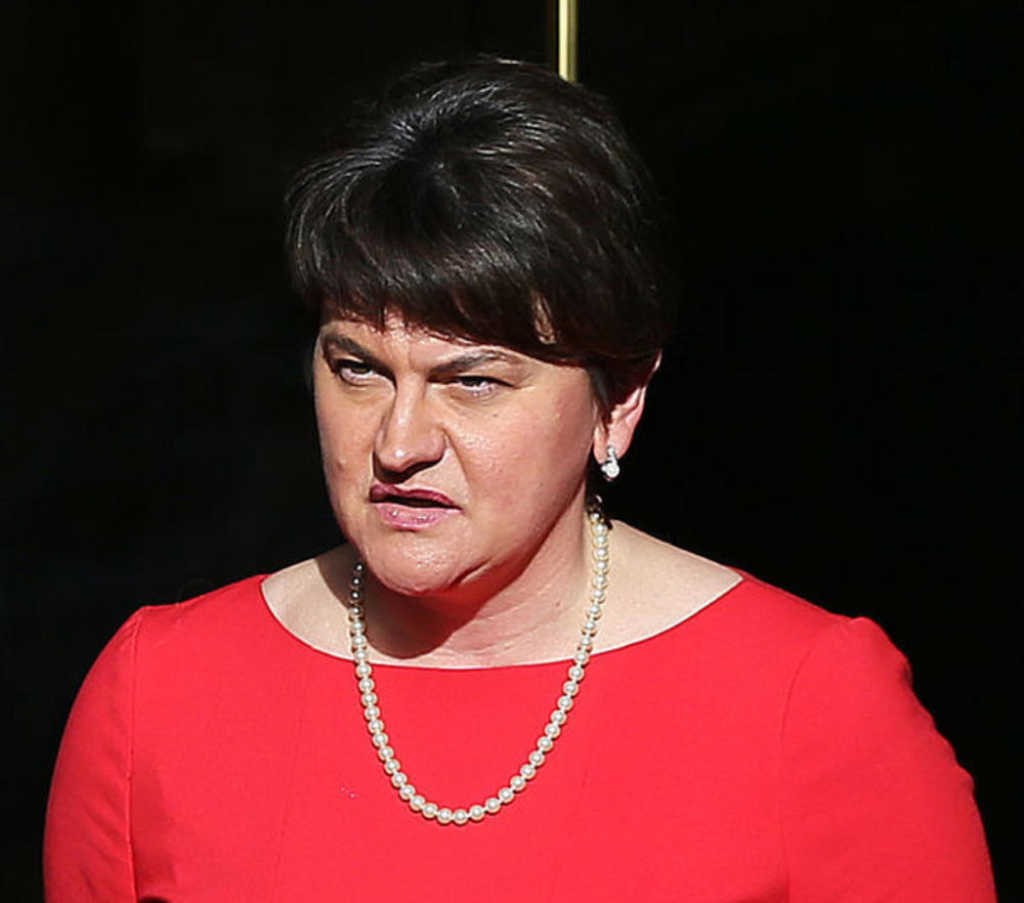Minister aware of flaws before launching RHI inquiry is told
Posted By: November 09, 2017
John Manley. Irish News. Belfast. Thursday, November 9, 2017


Arlene Foster was eager to launch the
RHI scheme even though flaws were highlighted.
Picture by Brian Lawless/PA Wire
Arlene Foster’s eagerness to launch the Renewable Heat Incentive (RHI) meant flaws were not addressed when they were brought to the attention of her department, the inquiry into the botched green energy scheme has heard.
On the second day of the official probe into the scheme, that is widely blamed for January’s collapse of Stormont’s power-sharing executive, the inquiry’s senior counsel David Scoffield QC said the Department of Enterprise, Trade and Investment (Deti) had been made aware of problems with the corresponding scheme in Britain before Northern Ireland’s bespoke RHI was opened to applications in the autumn of 2012.
Mr. Scoffield told the inquiry that scheme administrator Ofgem’s evidence includes claims Deti was asked to wait until necessary amendments were made to the scheme in Britain before launching in Northern Ireland.
However, officials from Mrs. Foster’s department said the minister wanted to proceed “without waiting or having reviewed the amendments”.
“Ofgem has told us in its corporate statement that Deti should not proceed with Northern Ireland regulations in advance of forthcoming amendments to the GB regulations,” Mr. Scoffield said.
“But Deti’s response was that Northern Ireland ministers wanted the scheme to go-ahead as soon as possible and did not wish to wait for the amended GB regulations.”
The concerns raised by Ofgem about Deti’s draft regulations related to the potential for claimants to install
several smaller, less efficient boilers in order to maximise payments; strengthening restrictions on what constituted ‘eligible heat’; and addressing
shortcomings in existing definitions, including the definition of a heating system.
“At first sight, it appears a number of the warnings about possible loopholes in the regulations may not have been picked up on,” Mr. Scoffield said.
The inquiry’s senior counsel said the claim would have to be “further probed in oral evidence.”
He went on to cite a telephone conference call in June 2012 involving officials from Deti and Ofgem.
During that call, Ofgem officials again urged their Deti counterparts to wait “as those (GB) amendments would negate risk which the Northern Ireland regulations currently posed.”
But Ofgem’s written evidence claims it was Mrs. Foster’s wish that the Northern Ireland scheme proceed.
The inquiry also heard a claim that the then economy minister was “adamant” that the scheme be launched in October 2012, months ahead of the amendments being made to the scheme in Britain.
Inquiry chairman Sir Patrick Coghlin asked Mr. Scoffield if he planned to make a submission to the inquiry about the information given to Mr. Foster, pictured, for approval and whether it would include the advice provided to Deti by Ofgem.
“I think the short answer to that question chairman is no we won’t be coming to such a submission”, the inquiry’s senior counsel replied.
Mr Scoffield said from March 2012 “the course seems to have been set” and that there was “a paucity of evidence” about what Deti was being told by Ofgem “and whether or how that was communicated to the Minster and her special adviser.”
Earlier, the inquiry heard how consultants, who had previously accepted blame for the scheme’s shortcomings, now felt they went too far in taking responsibility.
Cambridge Economic Policy Associates (Cepa) told Stormont’s Public Accounts Committee last year that they “missed” the fact the recommended subsidy rate was greater than the cost of wood pellets.
Mr. Scoffield said Cepa had made a “considerable retreat” from its original assertion and that its evidence statement said the company had “gone too far in terms of assuming responsibility, especially given the internal experience that Deti had and given what we were contracted to do.”
It was also noted that the tariff anomaly had not been spotted by anybody in the department and that it went on to be adopted in the botched scheme’s final regulations.
Mr. Scoffield said the mistake appeared as a “fatal footnote” in department documents where it stated wrongly that the cost of the fuel was greater than the subsidy.
“The public will want to know and deserve to know how that was missed,” he said.










